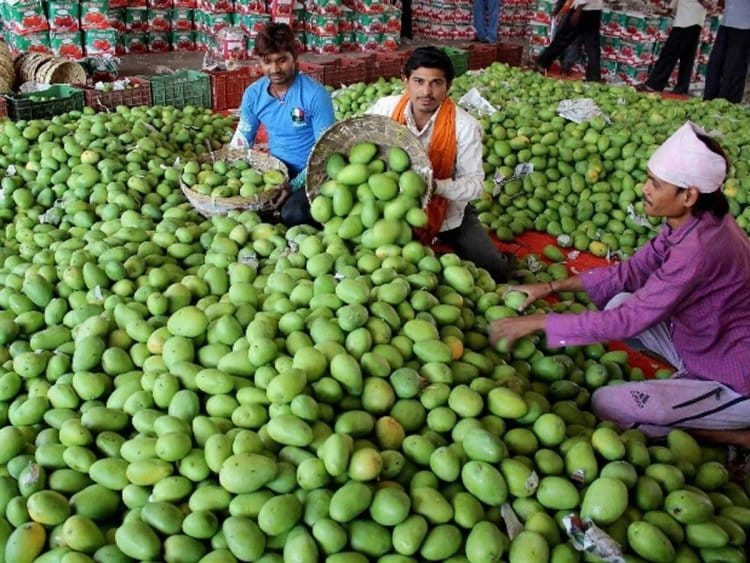Government Provides Support to Mango Farmers

The production of mangoes in India is projected to reach 228.37 Lakh Metric Tonnes (LMT) for the 2024-25 season, a slight increase from 223.98 LMT in the previous year. This rise is attributed to improved yields of processable mango varieties, particularly in the southern states. To support farmers and ensure fair pricing, the government has implemented several initiatives, including the Market Intervention Scheme (MIS) and a new Price Differential Payment (PDP) component.
Market Intervention Scheme and Its Impact
The Market Intervention Scheme (MIS) plays a crucial role in stabilizing prices for perishable agricultural products. Under this scheme, the government steps in to procure agricultural and horticultural commodities when market prices fall below the Market Intervention Price (MIP). This initiative is particularly important during peak harvest periods when an oversupply can lead to distress sales by farmers. The scheme is activated at the request of state or union territory governments, which are responsible for covering 50% of any losses incurred, or 25% in the case of North-Eastern states. This support aims to protect farmers from financial losses and ensure they receive a fair price for their produce.
Introduction of Price Differential Payment
Starting in the 2024-25 season, the government has introduced a new component under the MIS known as the Price Differential Payment (PDP). This initiative allows for direct payments to farmers to cover the difference between the MIP and the selling price of their crops. States and union territories can choose between physically procuring the crops or making differential payments to farmers. This flexibility is designed to enhance the financial security of farmers dealing with perishable crops, ensuring they are not adversely affected by fluctuating market prices.
Support for Mango Production and Research
The Ministry of Agriculture and Farmers Welfare is actively involved in promoting mango production through various initiatives, including the Mission for Integrated Development of Horticulture (MIDH). This mission provides a comprehensive framework for the development of horticultural crops, covering everything from nursery development to post-harvest management and marketing infrastructure. Additionally, support is available from organizations like the Agricultural & Processed Food Products Export Development Authority (APEDA) and the Agriculture Infrastructure Fund (AIF) to help establish accredited packhouses and promote exports.
Research and development in mango cultivation are also prioritized, with dedicated institutions under the Indian Council of Agricultural Research (ICAR). These organizations, including the Central Institute of Subtropical Horticulture and the Indian Institute of Horticultural Research, have developed numerous mango varieties suitable for commercial cultivation. Currently, ICAR operates 23 All India Coordinated Research Projects (AICRP) focused on mango, collaborating with state agricultural universities to enhance production, post-harvest management, and value addition.
Government’s Commitment to Farmers
The government’s commitment to supporting mango farmers was highlighted by the Minister of State for Agriculture and Farmers’ Welfare, Shri Ramnath Thakur, in a recent Lok Sabha session. He emphasized the importance of these initiatives in ensuring that farmers receive fair compensation for their crops and are protected from market volatility. The combination of the MIS, PDP, and ongoing research efforts reflects a robust framework aimed at bolstering the mango sector and enhancing the livelihoods of farmers across the country.
Observer Voice is the one stop site for National, International news, Sports, Editor’s Choice, Art/culture contents, Quotes and much more. We also cover historical contents. Historical contents includes World History, Indian History, and what happened today. The website also covers Entertainment across the India and World.

